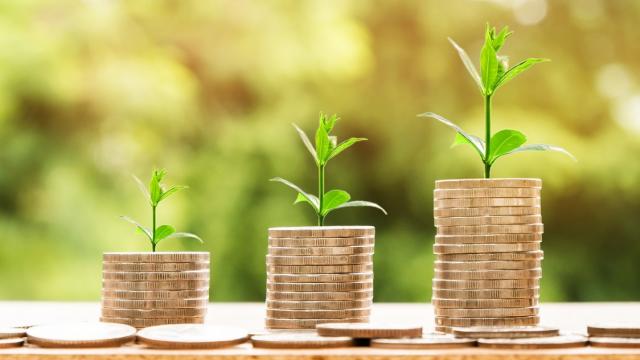
DECLARATION
We the undersigned, call for an immediate end to investments in new fossil fuel production and infrastructure, and encourage a dramatic increase in investments in renewable energy.
We are issuing this call to action in the lead up to the climate summit hosted by President Macron in Paris this December. President Macron and other world leaders, have already spoken out about the need for an increase in finance for climate solutions, but they have remained largely silent about the other, dirtier side of the equation: the ongoing finance of new coal, oil and gas production and infrastructure.
Ongoing global climate change and environmental destructions are happening at an unprecedented scale, and it will take unprecedented actions to limit the worst consequences of our dependence on oil, coal, and gas.
Equally as critical as drastically curbing the carbon intensity of our economic systems is the need for immediate and ambitious actions to stop exploration and expansion of fossil fuel projects and manage the decline of existing production in line with what is necessary to achieve the Paris climate goals.
Research shows that the carbon embedded in existing fossil fuel production will take us far beyond safe climate limits. Thus, not only are new exploration and new production incompatible with limiting global warming to well below 2ºC (and as close to 1.5ºC as possible), but many existing projects will need to be phased-out faster than their natural decline. Simply put: there is no more room for new fossil fuel infrastructure and therefore no case for ongoing investment.
It is time for the community of global economic actors to fully embrace, safe, and renewable energies and phase out fossil fuels. This letter affirms that it is the urgent responsibility and moral obligation of public and private investors and development institutions to lead in putting an end to fossil fuel development.
A global transition to a low carbon future is already well underway and we recognize that a full transition away from fossil fuels is an opportunity for a new economic paradigm of prosperity and equity. Continued expansion of oil, coal, and gas is only serving to hinder the inevitable transition while at the same time exacerbating conflicts, fuelling corruption, threatening biodiversity, clean water and air, and infringing on the rights of Indigenous Peoples and vulnerable countries and communities.
Energy access and demand can and must now be met fully through the renewable energies of the 21st century. Assertions that new fossil fuels, such the current push for gas, are needed for this transformation are not only inaccurate; they also undermine the speed and penetration of renewable energy.
The global investment community has the power to create the conditions under which this shift is possible. Current and future investments in fossil fuel production are at odds with a safe and equitable transition away from ever stronger climate disasters.
Global investor and international development actors and institutions must recognize that continued investments in fossil fuel production supply-side is irreconcilable with meaningful climate action. Instead, let us all prioritize the tremendous investment opportunities for a 100% renewable future that support healthy economies while protecting workers, communities, and the ecological limits of a finite planet.
This text was adapted from the Lofoten Declaration.
Are you an economist or do you work in economics or finance capacities (i.e. institutional investors, finance ministers, business school professors, etc.)? Add your name to the list below:
Signers of the Declaration on Climate Finance:
Alain Grandjean, Economist, Scientific advisor to the Foundation for Nature and Mankind
Alain Karsenty, Research Director at CIRAD, Montpellier
Ann Pettifor, Director of Policy Research in Macroeconomics, Prime
Anu Muhammad, Professor of Economics, Jahangirnagar University, Dhaka, Bangladesh
Aurore Lalucq, Economist and Director of the Veblen Institute
Camilla Toulmin, Professor, Dr
Carolina Burle Schmidt Dubeux, Environemental Economist, PhD and teacher at the Federal University of Rio de Janeiro · COPPE/Centro Clima
Cédric Durand, Maître de conférences en Économie, université Paris 13
Claudia Kemfert, Head of the department of energy, transportation and environment at the German Institute for Economic Research in Berlin
Co-Pierre Georg, Associate Professor, University of Cape Town. Research Economist – Deutsche Bundesbank , Policy Associate – Economic Research Southern Africa
Denis Dupré, Professor of finance and ethics
Dominique Plihon, Professor Emeritus of Economics, Paris-Nord University Director, Center of Economics of the University of Paris Nord
Dr Ben Groom, Associate Professor of Environment & Development Economics, LSE
Dr Michael Mason, Associate Professor, Department of Geography and the Environment, LSE
Dr. Alaa Al Khourdajie, Teaching Fellow in Environmental Economics, School of Economics, University of Edinburgh
Dr. Ashok Khosla, Chairman, Development Alternatives
Dr. Charles Palmer, Associate Professor of Environment and Development, London School of Economics and Political Science (LSE),
Dr. Ron Milcarek, UMASS Economics Department
Dr. Simplice Asongu, Lead Research Economist, African Governance and Development Institute
Emilio Padilla Rosa, Associate Professor, Department of Applied Economics, Autonomous University of Barcelona
Frank Ackerman, Principal Economist, Synapse Energy Economics
Gail Whiteman, Professor
Gautam Sethi, Associate Professor of Economics and Econometrics, Bard Center for Environmental Policy
Helene Ollivier, Research fellow of the CNRS and Associate Professor at Paris School of Economics
Herman Daly, Emeritus Professor, University of Maryland
Ian Kinniburgh, Former Director of Department of Policy and Analysis Division, UN Department of Economic and Social Affairs
Ilan Noy, Chair in the Economics of Disasters, Victoria University of Wellington, New Zealand
Ivar Ekeland Fellow of the Royal Society of Canada, Former President, the University of Paris-Dauphine
Jaime De Melo, Scientific Director at Ferdi (Emeritus Professor, University of Geneva)
James Kenneth Galbraith, Economist
Jean Gadrey, Jean Gadrey, former Professor of economics, University of Lille
Jean-Pierre Ponssard, Senior Research Fellow CNRS France
Jeffrey Sachs, Economist, Senior UN Advisor
John C. Quiggin, Australian Research Council Laureate Fellow and professor at the School of Economics, University of Queensland
John Hewson, Former Leader of the Federal Opposition, Australia
Jon D. Erickson, David Blittersdorf Professor of Sustainability Science and Policy
José Almeida de Souza Jr., Economist
Jusen Asuka, Professor Tohoku University
Kate Pickett, Professor, University of York Research Champion for Justice & Equality
Kate Raworth, Senior Visiting Research Associate, Environmental Change Institute, Oxford University
Katheline Schubert, Associate Professor at the Paris School of Economics and researcher at the Sorbonne Center for Economics
Katrin Millock, Associate Professor, Paris School of Economics & Research Fellow at CNRS
Lionel Fontagné, Professor of Economics at the Paris School of Economics - University Paris 1
Maria rosa ravelli abreu, Prof. Universidade Brasilia
Mariana Mazzucato, Professor in the Economics of Innovation and Public Value, Director, UCL Institute for Innovation and Public Purpose
Mark Campanale, Founder & Executive Director, Carbon Tracker Initiative
Marzio Galeotti, Ph.D., Professor of Environmental and Energy Economics, University of Milan - Milan, Italy
Maxime Combes, Maxime Combes, economist for ATTAC
Michael Jacobs, Visiting Professor, School of Public Policy, University College London
Michael Pirson, Professor, Gabelli School of Business, Fordham University
Mohammad A Jabbar, Agricultural Economist, International Livestock Research Institute
Mouez FODHA, Professor of Economics, Paris School of Economics & University Paris 1 Pantheon-Sorbonne.
Mutsuyoshi Nishimura, Former Ambassador of Japan to the UNFCCC negotiations Research Fellow, The Japan Institute of International Affairs (JIAA)
Neva Rockefeller Goodwin, Co-Director, Global Development And Environment Institute, Tufts University
Nicolas Bouleau, Mathematician, Economist
Oliver Sartor, PhD, Senior Research Fellow Climate and Energy, IDDRI
Patrick Criqui, Research Director, CNRS
Peter A. Victor Ph.D.,FRSC, Professor, Faculty of Environmental Studies, York University
Pierre-Richard Agenor, Professor of International Macroeconomics and Development Economics, University of Manchester
Pirax Didier, Econnomist
Prof Ross Garnaut, Professorial Research Fellow in Economics, Faculty of Business and Economics, University of Melbourne
Prof. James Renwick, Professor at Victoria University of Wellington, School of Geography, Environment and Earth Sciences
Prof. Michael Finus, Chair in Environmental Economics
Prof. Phoebe Koundouri, Athens University of Economics and Business, Director of International Center for Research on the Environment and the Economy, Chair Sustainable Development SOlutions Network Greece
Prof. Simone Borghesi, President Elect IAERE - Italian Association of Environmental and Resource Economists
Ramón López, Professor of Economics, Department of Economics, University of Chile, Santiago, Chile
RENOUARD Cécile, Professor, Centre Sèvres-Jesuit University of Paris and researcher, ESSEC Business School
Reyer Gerlagh, Professor of Economics, Tilburg University, Netherlands
Richard Denniss, Chief Economist, The Australia Institute
Richard Wilkinson, Emeritus Professor of Social Epidemiology University of Nottingham.
Rick Van der Ploeg, Professor of Economics and Research Director of the Oxford Centre for the Analysis of Resource Rich Economies at Oxford University, former Chief Financial Spokesperson in the Dutch Parliament
Robert Costanza, VC's Chair in Public Policy, Crawford School of Public Policy, The Australian National University
Robert M. Freund, Theresa Seley Professor in Management Science, Sloan School of Management, MIT
Serge Reliant, Economiste
Seyhun Orcan Sakalli, Postdoctoral Research Fellow, Department of Economics, University of Lausanne
Shahriar Shahida, Co-Chief Investment Officer Constellation Capital Management LLC
Shuzo Nishioka, Counsellor, Institute for Global Environmental Strategies
Slim Ben Youssef, Professor, ESC de Tunis
Suzi Kerr, Senior Fellow, Motu Economic and Public Policy Research
Takeshi Mizuguchi, Professor Takasaki City University Of Economics
Terra Lawson-Remer, Fellow at the Stanford Center for Advanced Studies in the Behavioral Sciences
Thomas Porcher, Associate Professor, Paris School of Business, member of “Les économistes attérrés
Thomas Sterner, Chair LOC World Conference of Environmental Economics
Tim Jackson, Professor, University of Surrey, UK
Tom Sanzillo, Director of Finance for the Institute for Energy Economics and Financial Analysis
Tom Steyer, Founder and former co-senior managing partner of Farallon Capital and the co-founder of OneCalifornia Bank
Valentina Bosetti, Associate professor at the Department of Economics, Bocconi University, President of the Italian Association of Environmental Economists
Véronique Seltz, PhD in Economics
Yanis Varoufakism, Greek Economist, Academic and Politician
Yifat Reuveni, Head of social-finance innovation JDC College of Management business school, Faculty of Management - Tel Aviv University
3 WAYS TO SHOW YOUR SUPPORT
- Log in to post comments













